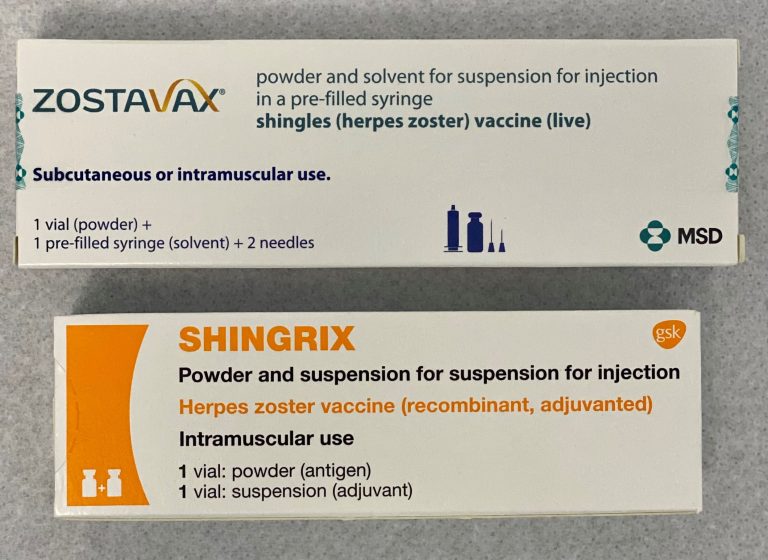GSK plc (LON/NYSE:GSK) has announced that DREAMM-3, the phase III open-label, randomised head-to-head superiority trial of Blenrep (belantamab mafodotin) monotherapy versus pomalidomide in combination with low dose dexamethasone (PomDex) in patients with relapsed or refractory multiple myeloma (RRMM), did not meet its primary endpoint of progression-free survival (PFS).
In the DREAMM-3 trial, the primary endpoint of PFS demonstrated a hazard ratio (HR) of 1.03 (95% CI: 0.72 1.47). The observed median progression-free survival was longer for belantamab mafodotin vs PomDex (11.2 months vs 7 months). Secondary endpoints include overall response rate (ORR), duration of response (DOR) and overall survival (OS). The ORR was 41% for belantamab mafodotin and 36% for PomDex. Belantamab mafodotin demonstrated a deeper response rate when compared with PomDex (25% VGPR or better with belantamab mafodotin compared to 8% with PomDex). The median follow-up was 11.5 months for belantamab mafodotin and 10.8 months for PomDex; the median DOR was not reached for belantamab mafodotin (95% CI: 17.9, –) vs 8.5 months (95% CI: 7.6, –) for PomDex; DOR rates at 12 months were 76.8% and 48.4% for belantamab mafodotin and PomDex respectively. The safety and tolerability profile of belantamab mafodotin was consistent with the known safety profile, and no new safety signals were identified. Overall rates of grade 3 keratopathy are consistent with prior reported data.
At the time of the primary analysis, the OS data had only achieved 37.5% overall maturity. The median OS was 21.2 and 21.1 months for belantamab mafodotin and PomDex, respectively, with an HR of 1.14 (95% CI: 0.77, 1.68).
Blenrep was granted accelerated approval by the US Food and Drug Administration (FDA) as a monotherapy for treating adult patients with RRMM who have received at least four prior therapies, including an anti-CD38 monoclonal antibody, a proteasome inhibitor, and an immunomodulatory agent. The accelerated approval was based on the results of the DREAMM-2 overall response rate, DOR and contingent upon a confirmed clinical benefit from a randomised phase III clinical trial. Data from DREAMM-3 is in the process of being shared with health authorities. Discussions with health authorities are currently ongoing.
Additional trials within the DREAMM (DRiving Excellence in Approaches to Multiple Myeloma) clinical trial programme will continue. These trials are designed to demonstrate the benefit of Blenrep in combination treatment with novel therapies and standard-of-care treatments in earlier lines of therapy and dosing optimisation to maintain efficacy while reducing corneal events. Data from the DREAMM-7 and DREAMM-8 phase III trials are anticipated in the first half of 2023.
About DREAMM-3
The DREAMM-3 phase III trial is an open-label, randomised trial evaluating the efficacy and safety of single-agent belantamab mafodotin compared to PomDex in patients with RRMM. A total of 325 participants were randomised in a 2:1 ratio to receive either single agent belantamab mafodotin administered as a 2.5 mg/kg dose every three weeks (Q3W), or PomDex. Pomalidomide was administered daily on days 1 to 21 of each 28-day cycle, with dexamethasone administered once weekly (days 1, 8, 15, and 22 of each cycle). The primary endpoint was PFS. Secondary endpoints include safety, OS, overall response rate, DOR and assessment of minimal residual disease.
About Blenrep
Blenrep is an antibody drug conjugate comprising a humanised BCMA monoclonal antibody conjugated to the cytotoxic agent auristatin F via non-cleavable linker. The drug linker technology is licensed from Seagen Inc.; monoclonal antibody is produced using POTELLIGENT Technology licensed from BioWa Inc. a member of the Kyowa Kirin Group.
GSK in oncology
GSK is focused on maximising patient survival through transformational medicines. GSK’s pipeline is focused on immuno-oncology, tumour cell targeting therapies and synthetic lethality. Our goal is to achieve a sustainable flow of new treatments based on a diversified portfolio of investigational medicines utilising modalities such as small molecules, antibodies, and antibody-drug conjugates, either alone or in combination.








































